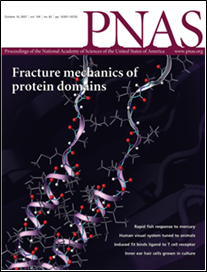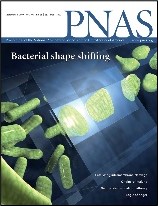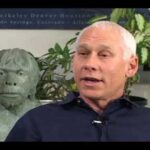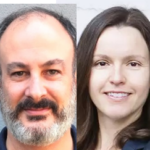Kin detection, anger, animals & foraging, coalitional alliances, cooperation, emotions, and more!
Kinship
How do our minds detect which individuals in the social world are siblings? Does a kin detection mechanism regulate altruism and sexual aversion toward siblings?
The Architecture of Human Kin Detection by Debra Lieberman, John Tooby, and Leda Cosmides in Nature, 445, 727-731 (Feb 15, 2007). Click here for more

Animals & Foraging
Do our minds have cognitive systems that evolved for foraging, hunting, and avoiding predators?
Category-Specific Attention for Animals Reflects Ancestral Priorities, not Expertise by Joshua New, Leda Cosmides, and John Tooby in Proceedings of the National Academy of Sciences, 2007.

Spatial Adaptations for Plant Foraging: Women Excel and Calories Count by Joshua New, Max Krasnow, Danielle Truxaw, and Steven J.C. Gaulin in the Proceedings of the Royal Society, Biological Sciences, 2007.

Anger and Formidability
Why does anger exist, what is its evolved function, and why are some people more anger prone than others?
Formidability and the logic of human anger by Aaron Sell, Leda Cosmides, and John Tooby, in Proceedings of the National Academy of Sciences, September 2009.

Theories of animal conflict predict that humans should have an evolved specialization for assessing fighting ability.
Sell et al. (2009, 2010) found that people are indeed good at assessing men’s upper body strength (an important component of fighting ability), and can do it from the body alone, face alone, and the voice alone—even when the faces and voices are culturally unfamiliar. Click here for more
Is there a relationship between men’s strength and their sense of entitlement—and does it follow an ancestral logic?
To find out, see The ancestral logic of politics: Upper-body strength regulates men’s assertion of self-interest over economic redistribution. by Michael Bang Petersen, Daniel Sznycer, Aaron Sell, Leda Cosmides, and John Tooby in Psychological Science, 2013.
Coalitional psychology and alliance detection
Cooperation between 3 or more individuals who are not kin is rare in the animal kingdom, yet common in our species. How did coalitional cooperation evolve, and what cognitive adaptations make it possible?
How does the mind identify free riders—individuals who take the benefits of group cooperation without contributing?
The psychosemantics of free riding: Dissecting the architecture of a moral concept, by Andrew W. Delton, Leda Cosmides, Marvin Guemo, Theresa E. Robertson, and John Tooby in the Journal of Personality and Social Psychology, 2012. Click here for more
Categorizing people by their race is not inevitable, as many psychologists had thought. It is an easily reversible byproduct of cognitive adaptations that evolved for another reason: to detect shifting coalitions and alliances.
By creating a social context in which race was uncorrelated with coalitional alliances, we were able to drastically decrease the extent to which subjects noticed and remembered other people’s race.
The content of our cooperation, not the color of our skin: An alliance detection system regulates categorization by coalition and race, but not sex by David Pietraszewski, John Tooby, and Leda Cosmides in PLoS One (2014). Click here for press summary
This series of experiments began in 2001, where the context we used to decrease categorization by race then was intergroup conflict (two basketball teams who had a fight). Can race be erased?: Coalitional computation and social categorization by Robert Kurzban, John Tooby, and Leda Cosmides PNAS 2001. Click here for FAQ and more
Differences in political opinions: an occasion for calm reflection or a signal that people belong to rival gangs? When race does not predict political alliances, the alliance detection system categorizes people as members of rival political parties and starts to ignore race. What’s more, racial categorization decreases, but categorization by sex and age do not. This is what you would expect if the mind treats race as an alliance cue…and nothing more. See Constituents of Political Cognition, by David Pietraszewski, Oliver Curry, Michael Bang Petersen, John Tooby, and Leda Cosmides. Click here for the press release and here to read the article.
David Pietraszewski has conducted more studies, to rule out many alternative explanations. For these click here.
Cooperation between two people, social exchange
In small groups, people cooperate more, trust more, and punish more than Homo economicus models from behavioral economics predict. A common response is that group selection is necessary to explain these behaviors. Is it? (no!). See:
The evolution of direct reciprocity under uncertainty can explain human generosity in one-shot encounters by Andrew W. Delton, Max M. Krasnow, Leda Cosmides, and John Tooby in Proceedings of the National Academy of Sciences, 2011. Click here for more
Click here for our reply to a commentary, and here to see a Science letter by Delton, Krasnow, Cosmides, and Tooby on alternative approaches to the evolution of cooperation.
Evidence of partner choice heuristics in a one-shot bargaining game by Adar Eisenbruch, Rachel Grillot, DarioMaestripieri, and James Roney in Evolution and Human Behavior, 2016.
Evidence that people use evolved heuristics for long-term, cooperative partner choice to calibrate their generosity toward partners in an ultimatum game—including estimates of how productive they would have been as foragers!
Is group selection really necessary to explain the evolution of motivations to punish free riders when people cooperate in small groups?
Group cooperation without group selection: Modest punishment can recruit much cooperation, by Max Krasnow, Andrew W. Delton, Leda Cosmides, and John Tooby, in PLoS ONE, 2015.
Cognitive adaptations for social exchange
A long line of research at the CEP (and before!) addresses whether the human cognitive architecture has cognitive adaptations designed for reasoning about social exchange (reciprocation, trade). Review papers are here. But just how specialized is the cheater detection mechanism? For a shorter article….
Adaptive specializations, social exchange, and the evolution of human intelligence by Leda Cosmides, Clark Barrett, and John Tooby in Proceedings of the National Academy of Sciences, 2010.
Here we show that cheater detection is activated only when the search for rule violations has the potential to reveal someone’s character—their propensity to cheat. It does not search for violations of social exchange rules when these are accidental, when they do not benefit the violator, or when the situation would make cheating difficult! click here for more
What are feelings for?
Our foraging ancestors lived or died depending on how much others valued them, because that affected the willingness of others to render help. In deciding how to act, they needed to balance the direct payoff of an action against its social consequences. Does the intensity of shame you anticipate feeling reflect how negatively others would see you if you did that act—allowing you to weigh, before acting, the social consequences of an action (e.g., stealing) against its direct payoff (e.g., acquiring)? Does the intensity of anticipated pride reflect how much more they would value you if you took an action? That is, does the intensity of these feelings have an adaptive function for decision-making?
Shame—a pathological emotion? Or did shame evolve as a defense against devaluation by others?
Shame closely tracks the threat of devaluation by others, even across cultures, by Daniel Sznycer et al., Proceedings of the National Academy of Sciences, 2016.
Click here for more on shame. See also: See For Shame and The Universality of Shame.
Are these regularities in the intensity of shame the fingerprints of an evolved adaptation—or do they exist because cultural evolution made WEIRD societies similar to one another? For data from 15 non-WEIRD societies—small-scale traditional societies in Africa, South America, Eurasia, and Asia,:
Cross-cultural invariances in the architecture of shame, Daniel Sznycer et al., Proceedings of the National Academy of Sciences, 2018.
Pride—sin or incentive?
Do anticipated feelings of pride track actions that would lead others to value you?
For more work spear-headed by Daniel Sznycer and colleagues:
Cross-cultural regularities in the cognitive architecture of pride, Proceedings of the National Academy of Sciences, 2017.
Invariances in the architecture of pride across small-scale societies, Proceedings of the National Academy of Sciences, 2018.






